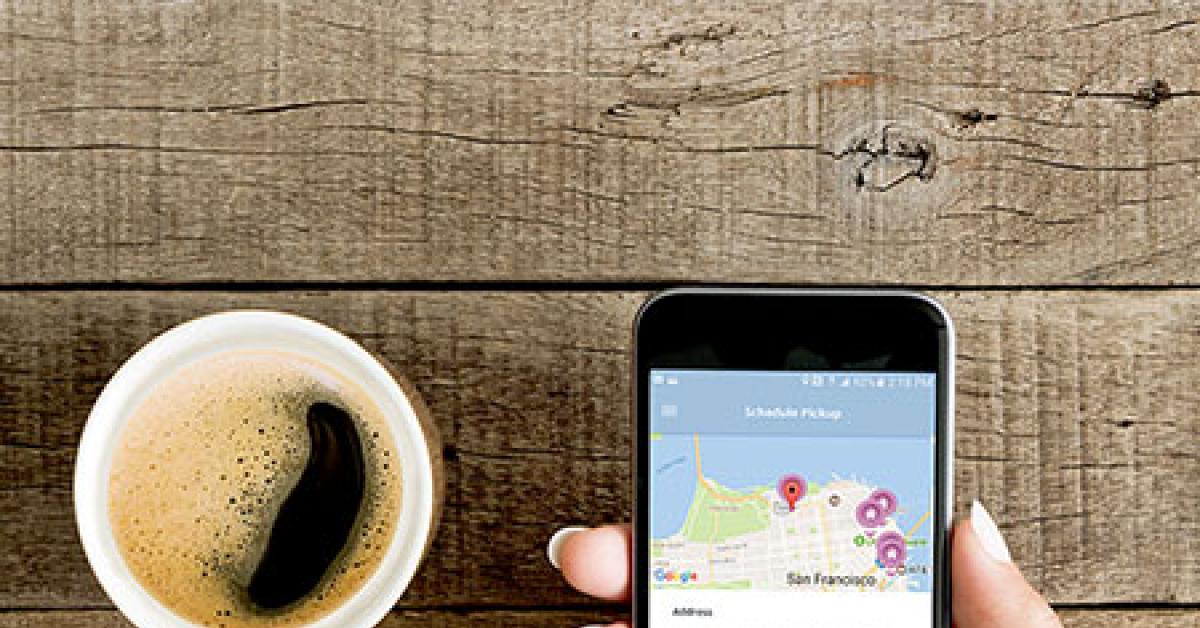CHICAGO — “We use our app to give our clients the most convenient drycleaning and laundry experience possible. With our app, you can find your nearest store, order ahead, schedule a pickup, track your order, and even pay your bill with the touch of a button.”
That’s Dan Miller, the president of Minneapolis, Minn.-based Mulberrys Garment Care, who describes his company as a premium, toxin-free drycleaning and laundry company with locations also in San Francisco and, coming soon, Dallas.
“We reach thousands of our customers via our app. Our younger customers particularly like the fact that they can order a one-hour pickup and then check the status of their order at any time.”
He’s asked to give advice to other drycleaning owners and operators considering adding an app.
“My advice would be if you’re going to do it, go all in. If not, don’t waste your time and energy. There are so many apps competing for people’s attention right now that only the truly well-designed apps will capture customers in the drycleaning and laundry space. If you’re not committed to that, don’t bother. You’re better off just focusing on providing a great core service.”
He shares a tip based on what he’s learned from offering apps at his fabricare business: “Be prepared to spend some money.
“People like to think of developing an app as though it’s a single project. However, making an app that really resonates with customers takes constant tweaking and improvement. To deliver on that improvement, you really have to commit your budget to building your app on an ongoing basis.”
Enter Rick Mugno, who is president of Liberty Computer Systems, Holly Springs, N.C., a software development company servicing and providing technology solutions to over 1,500 drycleaning and laundry operations worldwide for over 30 years.
“We were the first drycleaning software company to introduce an integrated app for iPhone users back in 2009,” he says.
He has some thoughts to share, based on his real-world experience, about how drycleaning owners are using apps today: “Apps can’t be developed in a vacuum. It’s important to have a bird’s-eye view of the end-to-end customer experience with the product or service before determining the role the app will play in making that experience as good as it can be.
“Apps are an important touch point that supports what’s unique, different and useful about our customer’s brand,” Mugno adds.
“It’s obvious through the lenses of our customers, we see the mobility of technology playing an increasingly critical role in maintaining and creating new opportunities for our customers,” he shares.
“In order to attract and maintain customers, and in particular the evolving millennial patron, we must provide our firm’s users with a way for these customers to connect to the services they provide, relying less on traditional brick-and-mortar avenues and more on smart device interaction.”
Mugno explains that his company’s app development and software enhancements are an integral part of a continued commitment and investment it makes in its customers, “where R&D dollars and resources are applied based upon customer feedback” and how and where its customers can improve upon their bottom line.
“In fact,” he notes, “we have recently hired a programmer specifically dedicated to app development. We engage our customers in the early development stages of features, design, feel, deployment, and how best to market the app to their customers.”
He gives as an example: “Our newest product and app is called iDryClean Pro and is creating quite the industry buzz. It’s designed to give our users a mobile way for their customers to connect to their store. And now in a branded version, it has given new meaning to customer interaction with drycleaning services, new revenue opportunities and brand loyalty.”
Mugno points outs that apps are more than the way of the future: “Apps are now. The future is here. Great apps help consumers find information and do tasks more quickly and easily. If you think that mobile apps are solely for big name brands, you are wrong.”
He indicates that more and more small and mid-size businesses are following the mobile trend, understanding that an effective mobile strategy involves more than just a mobile-friendly website.
“These days, you’ll notice that many small businesses you interact with in your everyday life have their own dedicated mobile app,” Mugno says. “These companies are ahead of the game when it comes to taking their marketing to the next level.”
Check back Thursday for the conclusion.
Have a question or comment? E-mail our editor Dave Davis at [email protected].

